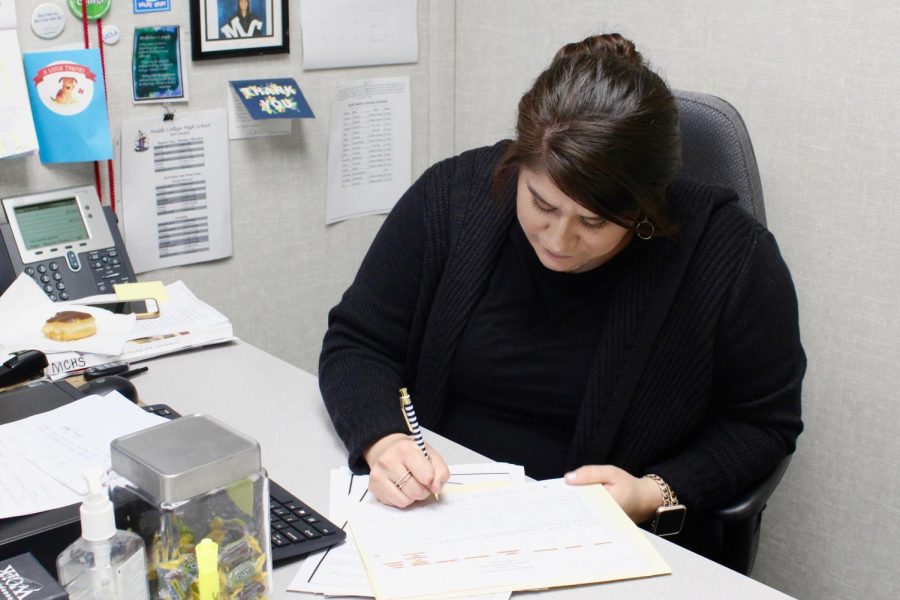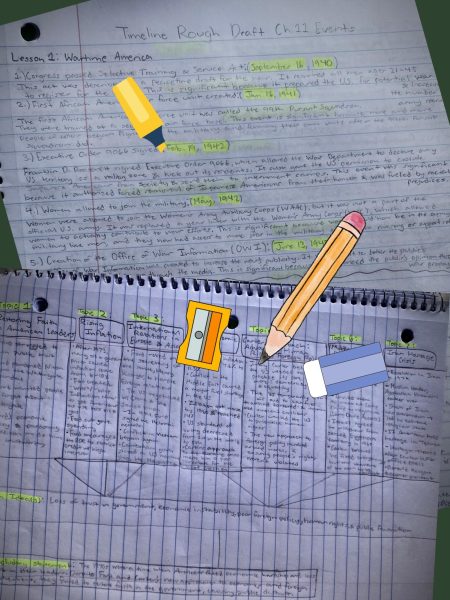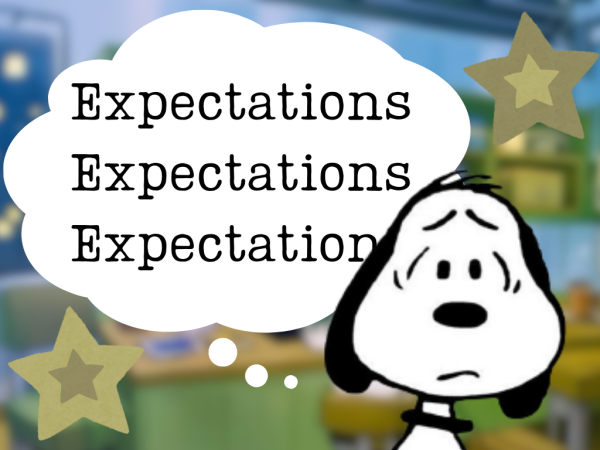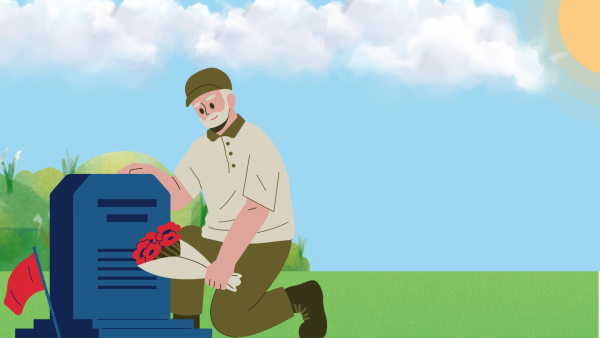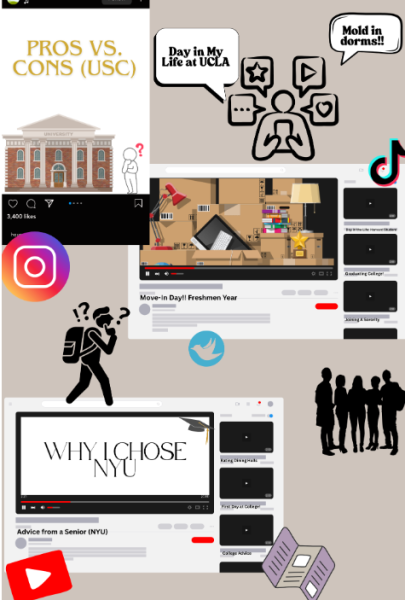Career Path Choice: Passion or Practicality?
Mrs. Olivos made a career change from practicality to passion.
“You can be whatever you want to be when you grow up as long as you believe in yourself,” they say before you find yourself homeless in a box, with no home, no job, no money, but a whole lot of student loans. It’s the failures reality can give that turns the dreams of a passionate teenager into an awful situation they can’t escape. While that student pursues a career path without thinking of the practicality of the situation, another could avoid it by pursuing a career that they are certain they can succeed in. Then they find themselves miserable in a job that takes up all their time and energy, dreading the moment they realize they have to return day after day. With the future coming at a rapid rate, students are faced with the decision of what they will be studying in college. This leads to the challenge of picking wisely, not knowing whether or not that choice will lead to a lifetime of miserable or inescapable failure.
At Middle College High School, students get the opportunity to take college classes. These classes not only give students an advantage of getting a degree sooner but also receiving a head start in picking a career. Yet this can be a disadvantage to an extent because, in a way, students are entering the real world faster.
The idea of choosing a major seems as simple as choosing an area of focus that interests a specific student. Yet the reality is people pick their majors for different reasons. Some people choose a major because of pressures of pursuing a career that one can succeed in. These people consider either their own personal skill, the employment rate, and/or the income. Others have a certainty that they know what career they want in life being of the belief that the career will make them happy. This brings in the question of whether someone is better off picking a career that is practical or one they are passionate about. Deciding what one wants to study is a much more complex topic as one would like to believe. There isn’t a clear answer to this question. Different people seek different things that sound great to them, but it is important for people to understand the conflicts that arise by solely looking at one.
What does it mean for a career path to be practical? It means just making money. People consider how much a job makes. Certain people want to have a salary that enables them to live an ideal lifestyle. As much as we like to believe that money doesn’t buy happiness, it still matters more than people give it credit to. The whole point of getting a job is to make money, which is why people see picking a career as picking something that’ll give them the most money. Another thing a practical career path entails is picking something where one’s skills will increase the likelihood of success.
When it comes to defining passion towards a career path, a student pursues something they know makes them happy and strives to succeed in it. The goal of a career path driven by passion is to eventually obtain a career in which one lives day by day, doing what they love.
Although both of these things sound great, without the consideration of both, a student’s path becomes impractical.
Ms. Olivos said, “I know a lot of people who are working jobs that they never really wanted or that they just got a hookup. They’re miserable. They don’t like it. They’re doing it just to make money, and even if it’s not making as much as they want, they’re doing it just for a job, and they think it’s too late to do anything else.” She claims that although a certain career path could be more practical, without passion, a person could live a life of misery.
Ms. Olivos said, “When I was a biochemistry major, I felt like this was what I was supposed to do. It’s going to make me the most money. It’s going to make my family happy because I’m making money. I never really stopped to consider the possibility, but it also made me happy going to work today.” Although at first she felt that following in the steps of her older siblings and making money is what she wanted, she needed to prioritize a career she was passionate about. In the end, the change paid off. She manages to live a lifestyle where she gets to do what she loves as a school counselor and make a living off of it.
Although practicality can lead to a miserable career, it still needs to be taken into consideration. As great as it would be for everyone to follow their dreams and hope that the money will follow, this isn’t mostly the case. Senior Millie Delgadillo said, “You may not want to be in a career that’s going to earn a lot of money and that can be hard in the long run because you might not be able to get a house or be stable.”
So in the end, it is important for someone to find a balance between these two. Junior Emily Corona said that people should, “Find something you like but something you know you’ll be able to find a job in. If you know it might not be a job that’s in demand, make sure you have connections or you network with people. Just find a way that’ll meet your standards because everyone has different standards.” Everyone wants different things, so by taking the time to consider what they envision their future to be, they will choose a major and a career path that in the end will make them happy.

Fun Facts:
I love television.
I hate green beetles. Dead or alive.
George O' Malley deserved better.

Fun Facts:
I've watched "Grey's Anatomy" three times... and counting.
I McLove McChickens.
Medicine is cool.
































